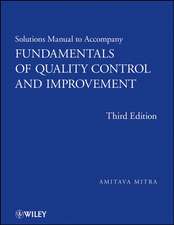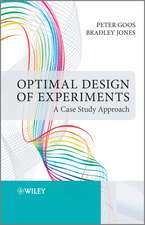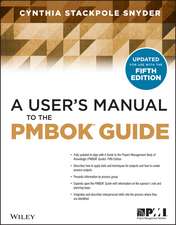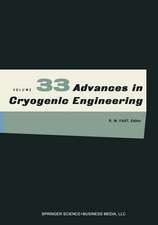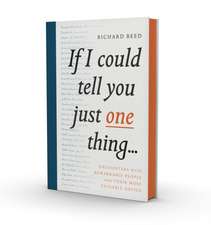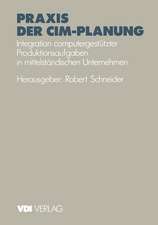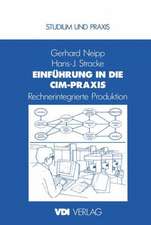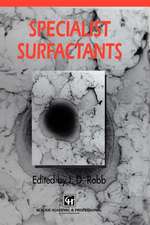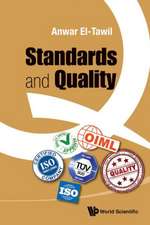Materials: Advances in Cryogenic Engineering, cartea 38
Editat de F.R. Fickett, Richard P. Reeden Limba Engleză Hardback – 30 apr 1992
| Toate formatele și edițiile | Preț | Express |
|---|---|---|
| Paperback (1) | 1231.01 lei 43-57 zile | |
| Springer Us – 29 apr 2013 | 1231.01 lei 43-57 zile | |
| Hardback (1) | 1238.86 lei 43-57 zile | |
| Springer Us – 30 apr 1992 | 1238.86 lei 43-57 zile |
Din seria Advances in Cryogenic Engineering
- 18%
 Preț: 1848.16 lei
Preț: 1848.16 lei - 15%
 Preț: 649.87 lei
Preț: 649.87 lei - 15%
 Preț: 660.37 lei
Preț: 660.37 lei -
 Preț: 406.25 lei
Preț: 406.25 lei -
 Preț: 410.46 lei
Preț: 410.46 lei -
 Preț: 433.19 lei
Preț: 433.19 lei -
 Preț: 444.13 lei
Preț: 444.13 lei -
 Preț: 452.62 lei
Preț: 452.62 lei -
 Preț: 499.95 lei
Preț: 499.95 lei -
 Preț: 426.23 lei
Preț: 426.23 lei -
 Preț: 423.18 lei
Preț: 423.18 lei - 15%
 Preț: 618.91 lei
Preț: 618.91 lei - 24%
 Preț: 1745.96 lei
Preț: 1745.96 lei - 18%
 Preț: 1841.23 lei
Preț: 1841.23 lei - 18%
 Preț: 1842.31 lei
Preț: 1842.31 lei - 18%
 Preț: 1833.33 lei
Preț: 1833.33 lei - 24%
 Preț: 1051.64 lei
Preț: 1051.64 lei
Preț: 1238.86 lei
Preț vechi: 1510.81 lei
-18% Nou
Puncte Express: 1858
Preț estimativ în valută:
237.13€ • 257.66$ • 199.32£
237.13€ • 257.66$ • 199.32£
Carte tipărită la comandă
Livrare economică 21 aprilie-05 mai
Preluare comenzi: 021 569.72.76
Specificații
ISBN-13: 9780306441837
ISBN-10: 0306441837
Pagini: 457
Ilustrații: XXII, 457 p.
Dimensiuni: 178 x 254 x 27 mm
Greutate: 1.05 kg
Ediția:1992
Editura: Springer Us
Colecția Springer
Seria Advances in Cryogenic Engineering
Locul publicării:New York, NY, United States
ISBN-10: 0306441837
Pagini: 457
Ilustrații: XXII, 457 p.
Dimensiuni: 178 x 254 x 27 mm
Greutate: 1.05 kg
Ediția:1992
Editura: Springer Us
Colecția Springer
Seria Advances in Cryogenic Engineering
Locul publicării:New York, NY, United States
Public țintă
ResearchCuprins
Mechanical Properties of Incoloy 908 — An Update.- The Effect of Indium Additions on the Cryogenic Tensile Properties of Superplastically Deformed Al-Cu-Li-Zr Alloy 2090.- Deformation and Fracture of Al-Li Alloys in Mechanical-Impact Tests.- Microstructure and Cryogenic Tensile Fracture Behavior of an Al-Li-Zn-Zr Alloy.- Microstructural Influence on the Work Hardening of Aluminumlithium Alloy 2090 at Cryogenic Temperatures.- Effects of Nb3Sn Heat Treatment on the Strength and Toughness of 316LN Alloys with Different Carbon Contents.- Metastable Austenites in Cryogenic High Magnetic Field Environments.- Property Evaluation of Ni Base Alloy for Superconducting Generators and Its Application to Seal Welded Joints.- Vamas Second Round Robin Test of Structural Materials at Liquid Helium Temperature.- Effect of Hydrogen Charging on Ambient and Cryogenic Mechanical Properties of a Precipitate-Strengthened Austenitic Steel.- Deformation Measurements of Materials at Low Temperatures Using Laser Speckle Photography Method.- Hydrogen Effect on the Mechanical Properties of Incoloy 907 from Ambient to Cryogenic Temperature.- Thick-Section Weldments in 21-6-9 and 316LN Stainless Steel for Fusion Energy Applications.- Joining of Austenitic Stainless Steels for Cryogenic Applications.- Creep of Indium at Low Temperatures.- 1100 Hour Creep Test Results for Ofhc Copper: Validation of Previously Published Results.- Fatigue and Fatigue Crack Growth Properties of 316LN and Incoloy 908 Below 10 K.- Deformation Structures in High-Cycle Fatigue of 0.1N32Mn-7Cr Steel at Cryogenic Temperatures.- Near-Threshold Fatigue Crack Growth of Austenitic Stainless Steels at Liquid Helium Temperature.- Long-Crack Fatigue Thresholds and Short Crack Simulation at Liquid Helium Temperature.- SuperconductorConduits: Fatigue Crack Growth Rate and Near-Threshold Behavior of Three Alloys.- High-Cycle Fatigue Properties of Titanium Alloys at Cryogenic Temperatures.- Cold Thermal Fatigue of Austenitic Stainless Steel.- Influence of Aging on the Fracture Toughness of Cryogenic Austenitic Materials, Evaluated by a Simple Test Method.- Effects of Boron on Increasing Toughness of High Strength High Manganese Non-Magnetic Steels.- The Charpy Impact Test as an Evaluation of 4 K Fracture Toughness.- Charpy Specimen Tests at 4 K.- Selected Residual Effects Upon Temperature Transitions.- Reactor Neutron and Gamma Irradiation of Various Composite Materials.- Radiation Damage of Glass-Fiber-Reinforced Composite Materials at Low Temperatures.- Effects of Fabric Type, Specimen Size, and Irradiation Atmosphere on the Radiation Resistance of Polymer Composites at 77 K.- A Radiation-Resistant Epdxy Resin System for Toroidal Field and Other Superconducting Coil Fabrication.- Effects of Radiation on Insulation Materials.- Radiation Effects on High Current Diodes at Cryogenic Temperatures in an Accelerator Environment.- Alumina Dispersion-Strengthened Copper Alloy Matrix Ti Added Nb3Sn Wire by the Tube Process.- Electrical Resistivity of Nanocrystalline Ni-P Alloys.- Magnetic Property of Gadolinium Hydrides.- Quench Protection Diodes for the Large Hadron Collider (LHC) at Cern.- Coefficient of Friction Measurements of Solid Film Lubricants at Cryogenic Temperatures.- Magneto-Transport Properties of Filamentary Aluminum Conductors in Magnetic Fields, 12–30 K.- Tribological Behavior of 440C Martensitic Stainless Steel from -184°C TO 750°C.- Scaling Tests on Smooth and Notched Specimens of Polyimide (Sintimid) at Cryogenic Temperatures.- Several Properties of Impregnating Epdxy Resins Used forSuperconducting Coils.- Shear Behavior of Glass-Reinforced Systems at Low Temperatures.- Shear Fracture Tests (Mode II) on Fiber Reinforced Plastics at Room and Cryogenic Temperatures.- Compression and Shear Tests of Vacuum-Impregnated Composites at Cryogenic Temperatures.- Cryogenic Fatigue Testing of Glass Reinforced Epdxy Tubes.- Glass-Film-Glass Hybrid Organic Composites for Forced-Flow Fusion Magnets.- Fracture-Mechanical Characterization of Fiber Reinforced Plastics in the Crack-Opening-Mode (Mode I).- Fracto-Emission from Crystalline and Non-Crystalline Materials at Cryogenic Temperatures.- Friction and Wear of Radiation Resistant Composites, Coatings and Ceramics in Vacuum and Low Temperature Environment.- An Innovative Process for the Impregnation of Magnet Coils and Other Structures.- Large Scale Tests of Composite Support Struts for Superconducting Magnetic Energy Storage Rings.- Friction and Wear of a Three-Dimensional Fabric-Reinforced Plastic at Room Temperature and Liquid Nitrogen Temperature.- Modification of the Astm D 3039 Tensile Specimen for Cryogenic Applications.- Thermal Insulating Support Systems for Radiation Environments.- Fatigue Behavior of UD-Carbon-Fibre Composites Cryogenic Temperatures.


